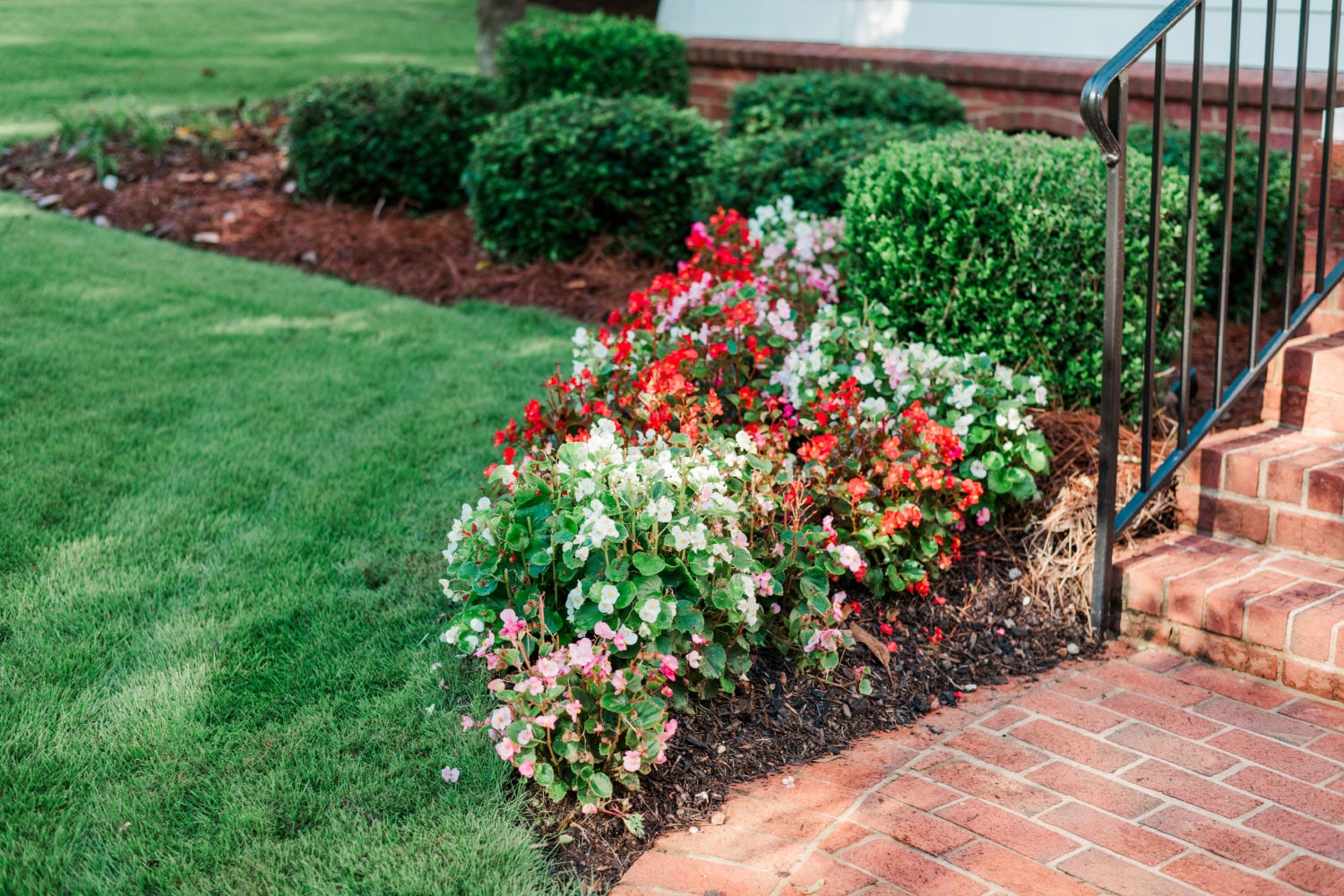It’s a warm Saturday morning. The sun is up, the birds are chirping, and it’s time to start mowing. As habitual as it seems, the benefits of regular mowing are often overlooked. What seems like a necessity created by successfully caring for your lawn, mowing properly is actually a fundamental component for achieving your lawn goals. Here are the top 5 benefits of mowing your grass regularly.
1. Turf Health
A regular mowing schedule reduces the potential for injury to the turf, maximizing the opportunity for turf to remain its healthiest at all times. While environmental conditions can change how fast our grass grows, following suggested turf height and mowing frequency limits the potential for unintentional damage as a result of removing too much plant material at a single time. The 1/3rd rule is often used to explain how much turf can be cut at a single time. If your lawn is 1.5” tall, a max of .5” should be removed during a mowing to avoid mower-related stress. In Atlanta, our hybridized Bermudas and Zoysias should be cut at a height of 1.5-2” every week.
2. Density
Thick and green are the two most common adjectives we use to describe beautiful lawns, and mowing is directly related to density. Without venturing too deeply into plant biology, it’s important to know that regular mowing is a primary factor of lawn density. Bermuda and Zoysia are both spreading turf types. Regular mowing is a form of pruning, which encourages more of that lateral growth and an increase in the number of shoots. Aesthetically, reducing the incidence of damage also maintains the green blades and enables the plants to focus on producing more blades instead of recovering from unintentional damages.
3. Slower Thatch Formation
By definition, thatch is a layer of decaying organic matter consisting of both living and dead plant material between the grass you see and the soil beneath it. The tissues making up this layer are usually stems, thick roots, stolons, and rhizomes. These plant materials are high in cellulose, much like a tree trunk, and require significantly more time to break down than leaf blades. Prolonged periods of time between cuts will result in cutting stem material as well as leaves. Long after the blades have degraded, the stem material will remain as a component of the thatch layer. To learn more about thatch, the challenges it presents, and how to remove it, check out this blog.
4. Less Weeds
Increased turf density means shaded soil and better competition with weeds for light and resources. Regular mowing also repeatedly injures weeds. It’s hard to imagine that grass can provide significant shade to the soil’s surface, but thick turf absolutely limits the amount of sunlight that makes it to the soil’s surface. In the same way that a large oak tree can make it difficult for our Bermuda to grow well, our Bermuda can make it more difficult for weeds to germinate and be successful. Regular mowing also repeatedly injures weeds. Perennials that produce bulbs such as wild onion may produce less bulblets, and grassy weeds such as dallisgrass may produce less seed if repeatedly injured. Slowing the development of these energy-storing structures lessens the opportunity for these weeds to exist in our turfs, especially when combined with weed control, both pre- and post-.
5. Optimized Response to Treatment
A healthy, dense turf with appropriate thatch levels will pair best with a well-designed fertility and weed control program. The best lawns are the result of well-executed teamwork. At Nature’s Turf, we aim to be the best teammate we can be for your lawn’s fertility and weed control needs, and our programs work best when combined with sound mowing and watering techniques. Healthy turf makes the best use of our fertilizers, stretching their legs to produce new shoots, deep roots, and dark green leaves. That creates density, aiding our pre-emergent weed control products in suppressing new weed formation, while continued mowing batters the weeds we injure with our spot treatments. To learn more about how we can help destroy weeds and defend lawns, give us a call at (678) 831-6343 or send us an email.








